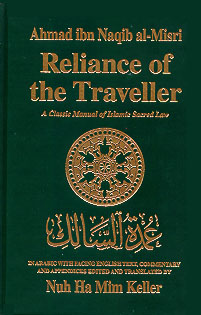
Islamo-Biblica in Islamic Legalism and Ritualism.
Qur'ānic and Early Islamic Law and legalism
Islamo-Biblica-and Islamic Legal and Ritual Practises
- Ḥajj (Pilgrimage)...
Wheeler, Brannon M.
-
Mecca And Eden: Ritual, Relics, And Territory in Islam. Univ of Chicago Press, 2006 (333pp.)
[1] Abū Ḥanīfah = Imam Muhammad Nu’man ibn Thabit ... (c. 80-148 AH= c. 699-767 CE)
Founder of the Hanafi school of Islamic
The Kitab al-Āthār of Abū Ḥanīfah. The Narration of Imam Muhammad Ibn al-Hasan...
[2] Mālik ibn Anas = Abū `Abd-Allah Malik ibn Anas / ibn Malik ibn 'Amr al-Asbahi (c. 94-179 = c. 716-796).

Author of the first major law book al-Muwaṭṭā', the Mālikī school of law trace their roots to him.
During the first/seventh century and early part of the second/eighth century compilation was limited to writing down those baáĩth in oral circulation. Later scholars started grouping hadītb under titles indicating their subject matter. This type was called musanna/, i.e. classified or systemized compilation.
Although Ibn Jurayj, (d. 150/767), and Ma'mar b. Rashid, (d. 153/770), were the first compilers of musannaf, yet the best-known work of this type is al-Muwaṭṭā' of Mālik b. Anas, founder of the second major law school, which also contains opinions and legal decisions.
The Muwaṭṭā ՝ was revised several times over forty years by its author, who flourished in Medina, having studied earlier with renowned scholars there, and in turn taught those revised works to his disciples. Mālik's revised work survived in some different versions through his disciples, notably Yahya b. Yahya al-Laythĩ of Cordoba (d. 732/848), and of Muhammad b. al-Hasan al-Shaybănĩ (d. 189/804), the well known Hanafī authority. Yahya's version is the more popular.
The Muwaṭṭā's sixty-one chapters, here called " books " (sing, kitāb), are arranged according to the categories of the religious law, each dealing with one topic such as purity, prayers, ŗakāh (alms-tax), fasting and so on. Chapters are divided into sub-chapters (sing. băb). A bah may begin with a relevant hadīth followed by comments, or with a question addressed to Mālik followed by his answer, either alone or supported by a hadīth or a Quranic verse, or by an opinion of a Companion or a Follower, or by the custom prevailing among the people of Medina.
Among the 1,720 hadītb existing in Yahya's version, which include 613 statements attributed to Companions and another 285 attributed to Followers, there are 61 without an isnād, some with interrupted isnāds and 222 in which the narrating Companion is not mentioned. Some scholars later discovered complete isnăds for those hadīth.
Alarmed by the increasing circulation of spurious hadīth, Mālik and many other theologians of this period denounced, like those before them, the promoters of such falsehood, thus enlarging the foundations of the science of Hadtth criticism and adding to its terminology. Mālik himself is credited with the following statement, which approaches a classification of muhaddiths (transmitters of Hadīth} :
Knowledge should not be accepted from four categories [of transmitters], but may be received from others. It should not be accepted from persons advocating heretical views, or from idiots, no matter what they may claim to know, or from those who lie to people, even if they may not be expected to lie about the Prophet, or from persons of integrity and righteousness who are not sufficiently accurate." (CHAL 1:272-3).
Editions:
- al-Muwaṭṭā', ed. Muhammad Fu'ād 'Abd al-Baqī, Cairo 1952-3;
- Muwaṭṭā' Imam Mālik, recensions of Yahya b. Yahya al-Laythī. Dar al-Nafa'is, 1390/1970 + 1414/1994. (756pp.).
- Beirut 1985; ed. 'Abd al-Majīd Turkī, Beirut 1994
- al-Muwaṭṭā' al-Shaybanī, Muwaţţa' Muhammad.
- al-Muwaṭṭā'. Edited by Fārūrq Sa'd. Beirut: Dar al-Afaq al-Jadida, 1981.

- Al-Muwatta of Imam Malik ibn Anas, The First Formulation of Islamic Law Imam Malik ibn Anas, Translated by Aisha Abdurrahman Bewley, London and New York: Kegan Paul International' ( 465pp.). *
Al-Muwatta, Imam Malik trans. `A'isha `Abdurrahman at-Tarjama and Ya`qub Johnson, Norwich: The Diwan Press, 1982. ( 548pp.). * - http://en.wikipedia.org/wiki/Al-Muwatta
- http://cwis.usc.edu/dept/MSA/fundamentals/hadithsunnah/muwatta/
Muhammad b. Sa`d `Abd al-Baqi al-Zurqani (d. 1122/1710).
-
Sharḥ al-Zurqānī`alā Muwaṭṭa' al-Imam Mālik, Beirut: Dar al-Kutub al-`Ilmiyya, 1990.
Abū Bakr Muhammad ibn 'Abd-Allāh ibn al-'Arabī al-Ma`rifi (d. 543/1092).
Andalusian Mailikī jurist and commentator who was qaḍī (judge) in his native Seville. He journeyed to Syria and Iraq and Egypt and was a one time pupil of `Abd al-Ḥāmid al-Ghazālī (d.505/1111). See J. Robson EI2 III:707; McAuliffe, 2006 [CCQ] pp.194-196.
- Ahkām al-Qur'ān ("The Legal Rulings of the Qur'an). ed. Muhammad 'Abd al-Qadir 'Aţa. 4 vols. Beirut: Dār al-Kutub al-'Ilmiyyah. 1408/ 1988.
- Anwār al-fajr. ("The Light of ther Dawn"). Lost.
- al-Amad al-aqṣā ("The Furthermost Pillar"). On the Divine Names and Attributes. In mss. Rabat and Istanbul...
'Abd al-Ghanī al-Nābulsī (d. 1143/1730)
-
Dhakha'ir al-mawarīth fi'l-dalālah 'alā mawădī al-Ḥadĩth, Cairo, 1934, 4 vols.
-
Dhakha'ir al-mawarīth fi'l-dalālah 'alā mawădī al-Ḥadĩth, ed. `Abd-Allah Mahmud Muhammad `Umar. 3 vols. Beirut: Dar al-Kutub al-`Ilmiyya. 1419/1998.*
-
This work "treats the Six Books and al-Muwattā', arranges in alphabetical order the names of the Companions through whom hadīth are traced, and quotes, under the name of each Companion, the aṭrāf of his hadīth, also arranged alphabetically, followed by their references. The total of hadīth quoted in this work is 12,302, derived from 1,131 Companions including 129 women." (CHAL 1:ADD).

Tomb of al-Shāfi`ī (Cairo)
[3] Shāfi`ī, Abū Abd-Allah Muhammad ibn Idrīs (150-204 AH = 767-820 CE)
Muslim jurist and reputed `Father of Islamic Jurisprudence'. The Sunni Shāfi`ī school was based on his legal, doctrinal teachings.
- Kitāb al-Umm, 7 vols, Cairo, 1321-5/1903-8.
- Kitab al-umm, Beirut: Dar al-Fikr, n.d.
- Jumā` al-`Ilm. ed. Ahmad Muhammad Shākir, Cairo: ADD., 1359/1940.
- al-Muṣnad. 2 vols. ed. Muhammad `Ābid al-Sindī. Cairo: XXXX., 1369/1950.
- Kitab Aḥkam al-Qur'ān. 2 vols. ed Muhammad Zāhid al-Kawtharī. Cairo: XXX., 1371-2/1951-2.
- Kitāb al-Umm, 7 vols, Cairo, 1321/1903.
- Kitab al-umm, Beirut: Dar al-Fikr, n.d.
Risāla ("The Epistle").
- Risāla fi usul al-fiqh. Cairo: XXXX., 1358/1940.
- Risāla. Cairo: XXXX., 1358/1940.
Khadduri, Majid.
- Islamic Jurisprudence: Shāfi`ī's Risāla. John Hopkins Press, 1961.
- al-Shafi`i's Risala, Treatise on the Foundations of Islamic Jurisprudence, Trans. with Introduction, Notes and Appendices. 2nd ed. Cambridge: The Islamic Texts Society, 1997 (379pp.). *
[4] Ibn Hanbal, Aḥmad b. Hanbal (164-241 = 780-855) d. Baghdad 241/855. Muslim Traditionalist, theologian and jurist.
"The Musnad of Ahmad b. Hanbal, (d. 241/85 5), founder of the fourth [p.274] law school, is the best known of this category. It was transmitted through Ibn Hanbal's own son, 'Abdullah (d. 290/903), and then through 'Abdullah's disciple, Abū Bakr al-Qaţl'î, (d. 368-979), both of whom made a few additions. It relates on the authority of 700 male and almost 100 female Companions whose names are arranged according to their seniority, beginning with the first four caliphs (the "Răsbidũn"}. It contains 30,000 hadtīhs, excluding 10,000 repetitions, filling six large volumes in small type in its Cairo edition (1312-13). Although the claim that the Musnad contains a few discredited hadīth was rejected by later scholars, it is admitted that some are "weak" (da'if}. However, to some jurists, like Ibn Hanbal himself, this type of hadīth was useful in making legal decisions" (CHAL 1:273-4).
The Musnad of Ibn Hanbal which contains over 27,000 hadith was first printed in Egypt in six volumes in the early 1890s under the direction of Ahmad al-Babi al-Halabi.
-
Ahmad, Musnad imam al-muhaddithin wa-l-qudwa fi l-zuhd wa-l-wara Cairo n. d.. early 1890s (so Melchert, 2005: 34+fn.12).
- al-Musnad, ed. Muhammad al-Zuhrī al-Ghamrāwī, 6 vols., Cairo 1313/1895. repr. Beirut 1978.
- al-Musnad,ed. Aḥmad Muhammad Shākir et al., 15 vols.,[incomplete] Cairo: ADD., XXXX/1949
- al-Musnad,ed. Aḥmad Muhammad Shākir et al., 20 vols., Cairo 1416/1995
- al-Musnad, 6 vols, Beirut, 1389/1969.
- al-Musnad, ed. Ahmad Muhammad Shakir, Cairo 1368–75/1948–56.
- Musnad al-imam Ahmad ibn Hanbal, ed. Shu`ayb al-Arnaūṭ, et. al. 50 vols. Beirut 1413–21/1993–2001.
- Ṭalā`i al-Musnad. ed. Ahmad Muhaammad Shākir, Cairo: Maktab`ah al-Turath al-`Islami, XX vols. n.d. *
A Commentary on the Musnad was written by Muhammad ibn Abd al-Hadi (d. Medina, 1138/1726) according to `Abd al-Qadir Ibn Badran, al-Madhal ila maühab al-imam Ahmad ibn Hanbal (Cairo n. d.), 246 = ed. Abd Allah ibn Abd al-Muhsin al-Turki (Beirut 1401/1981), 473.
Melchert, Christopher (Oxford University)
-
`Musnad of Ahmad ibn Hanbal: How It Was Composed and What Distinguishes It from the Six Books' in Der Islam vol. 82 (2005), 32-51.
-
`Ahmad ibn Hanbal and the Qur'am' in Journal of Qur’anic Studies 6:2 (2004) Abstarct =
-
"Ahmad ibn Hanbal (d. Baghdad, 241/855) was the central, defining figure of Sunnism in the earlier ninth century C.E. He was a major collector and critic of hadith, as well as stories of early renunciants, and his collected opinions would form the literary basis of the Hanbali school of law. Men would assert as a badge of orthodoxy that their creed was Ahmad’s (e.g. Muzani, Tabiri, Ash’ari). He famously resisted the Inquisition of Ma’mun and his successors, refusing to acknowledge that the Qur’an was created.
-
Ahmad’s ideas about the Qur’an are found in collections of his answers to questions (masa’il), in biographies (both of him personally and of his followers), and in his Musnad. They show a devotion above all to the liturgical use of the Qur’an; for example, how it should be recited aloud, how it should be integrated with the ritual prayer. He did not tend to infer the law directly from the Qur’an, but from hadith, and put together his own version of the text (qira’a), although it is not preserved. (The report that he assembled a huge Qur’anic commentary is doubtful). Therefore, it was not mainly as a record of Islamic law that Ahmad defended the transcendence of the Qur’an but more directly as the basis of Islamic piety."
Patton, W. M.,
-
Ahmed b. Hanbal and the Mihna, London, 1897.
-
Ahmad ibn Hanbal. Oxford: Oneworld,
al-Nawawī, Muhyi al-Din Abū Zakariyyā' Yaḥyā ibn Sharaf ibn Muri .... (631-676 AH = 1233-1277CE)
- Al-Maqasid: ma yajib ma'rifatuh min al-Din (The Objectives: what is necessary to know of the religion). A "synopsis of Shari'ah in 7 sections: Fundamentals of the religion, Purification, Prayer, Zakah, Fasting, Pilgrimage, and Virtues.
- al-Maqasid Imam Nawawi's Manual of Shariah By Imam al-Nawawi (died 676/1277) Edited and translated by Nuh Ha Mim Keller. First published 1994, ISBN 0-9638342-1-5, LC 93-087727 Paperback, 8.5x5.5 inch, 148 pages. Re-published by The Islamic Texts Society.
- Sharh = Sharḥ Sahih Muslim, 18 vols, in 8, Cairo 1349/1929-30; ed. Khalīl Muhammad Shīhā.
- 19 vols, in 10, Beirut 1995
- Kitab al-Arba`in ("Book of the Forty [Traditions]")
- Sharh Kitab al-Arba`in ("Commentary upon the Book of the Forty [Traditions]") -- There are many commentaries written on the above collection.
-
Sharh Sahīh Muslim, on margin of: al-Qasţallănl, Irshăd al-Sărî li-Sharh Sahīh al-Bukharī, 12 vols, Cairo, 1326/1908.
- an-Nawawî, Ya
hyā: Vierzig Hadithe
Ibn Taymiyyah = Taqi al-Din, `Abū 'l-`Abbās Aḥmad ibn `Abd-Allāh al-Halim (d.728/1328).
- The Medinan Way: the Soundness of the Basic Premises of the School of the People of Madina. Trans. of Sihhat usul madhab ahl al-madinah by Aisha Bewley. Norwich, U.K.: Bookwork, 2000.
- Al-Siyasah al-Sha`riyya. Trans. by Omar A. Farrukh as Ibn Taymiyya on Public and Private Law in Islam. Beirut: Khayats, 1966.
al-Misri, Ahmad ibn Naqib al-Misri (d.769/1368).

-
Reliance of the Traveller: The Classic Manual of Islamic Sacred Law Umdat Al-Salik. Trans. Noah Ha Mim Keller. Beltsville, Maryland, USA.,: Amana Publications. 1991, revised ed. 1994. ISBN-10: 0946621535 ISBN-13: 978-0946621538 (Arabic + English text, 1232+2pp.).*
"A translation of the classical manual of Islamic Sacred Law (Shari'ah) `Umdat as-Salik by Ahmad ibn Naqib al-Misri (d. 769/1386), in Arabic with facing English text, commentary and appendices edited and translated by Nuh Ha Mim Keller. First published 1991, second printing 1993 (ISBN 0-9638342-0-7) Revised Edition 1994 ISBN 0-9638342-2-3, CIP 94-19018, hardcover, 9.5"x6.5", 1254 pages. Information about the Text 'Umdat al-Salik wa 'Uddat al-Nasik (Reliance of the Traveller and Tools of the Worshipper) is a Sunni manual of Fiqh (Islamic jurisprudence). It is based mainly on the fiqh conclusions of Imam al-Nawawi, the great Hadith master (hafiz) and Shafi'i scholar of jurisprudence (mujtahid). The appendices form an integral part of the book and present original texts and translations from classic works by al-Ghazali, al-Nawawi, al-Qurtubi, al-Dhahabi, Ibn Hajar and others, on topics of Islamic Law, faith, spirituality, Qur'an exegesis and Hadith sciences, making the work a living reflection of Islam as understood by some of its greatest scholars. It has also biographical notes about every person mentioned (391 biographies), bibliography of each work cited (136 works), and a detailed subject Index (95 pages). Of the 136 works drawn upon in its commentary and appendices, 134 are in the original Arabic. The sections and paragraphs have been numbered to facilitate cross-reference."
Ibn Rushd, Muhammad ibn Aḥmad = Averroes ( XXX-XXX = 1126-1198).
- Bidyat al-Mujtahid (Compartive Fiqh book): Arabic E-text (edited, without the critical apparatus.) Source: Muhadith.org (Zipped) : http://www.muslimphilosophy.com/books/BIDMJ.htm
- Bidayat al-Mujtahid. Trans. by Imran Ahsan Khan Nyazee as The Distinguished Jurist’s Primer. Reading, U.K.: The Centre for Muslim Contribution to Civilisation, 1994. 2 vols.
Imamī Shī`ī Islamic Legalism

ISLAMIC LAW: SELECT BIBLIOGRAPHY
General and Miscellany.
- The Islamic Criminal Justice System. Ed. M. Cherif Bassiouni. London: Oceana Publications.
- Islamic Law and Jurisprudence. Ed. Nicholas Heer. Seattle and Washington: University of Washington Press, 1990.
Islamic Law Reform and Human Rights: Challenges and Rejoinders. Ed. Tore Lindholm and Kari Vogt. Copenhagen: Nordic Human Rights Publications, 1993. - Islamic Law: Theory and Practice. Eds. Robert Gleave and Eugenia Kermeli. New York: I.B. Taurus, 1997.
- Islamic Legal Interpretation: Muftis and Their Fatwas. Ed. by Muhammad Khalid Masud, Brinkley Messick and David S. Powers. Harvard University Presss, 1996.
- Islamic Political Ethics: civil society, pluralism and conflict. Ed. Sohail H. Hashmi. Princeton University Press, 2002.
al -`Alwani, Taha Jabir.
-
"The Crisis in Fiqh and the Methodology of Ijtihad," The American Journal of Islamic Social Science 8,2 (1991): 317-337.
-
The Ethics of Disagreement in Islam. Herndon, VA: The International Institute of Islamic Thought, 1993.
-
Usul al Fiqh al-Islami: Source Methodology in Islamic Jurisprudence: Methodology for Research and Knowledge. Herndon, VA: The International Institute of Islamic Thought, 1990.
Burton, John,
-
Abū 'Ubaid's Kitāb al-nāsikh wa-'l-mansukh, Gibb Memorial Trust, Cambridge, 1987. *
-
The sources of Islamic Law, Edinburgh, 1990.*
-
An Introduction to the
Ḥadîth. Edinburgh: Edinburgh University Press, 1994. *
Brunschvig, R.
-
'Les usul al-fiqh Imamites a leur stade ancien (Xe et XIe sičcles)', in Le Shī'isme I marnate (Paris, 1970), pp. 201-13
Calder, N.
-
1993. Studies in Early Muslim Jurisprudence, Oxford: Oxford University Press, 1993.
Cilardo Agostino
-
Qur'anic Term Kalala: Studies in Arabic Language And Poetry, Hadit, Tafsir, And Figh, Notes on the Origin of Islamic Law. Edinburgh Univ Press., 2006., (116 Pp.) ISBN = 074861916X. *
Coulson, N. J.
-
(1971). Succession in the Muslim family. Cambridge, University Press.
Dutton, Yasin.
-
`Amal v. Hadith in Islamic Law: The Case of Sadl al-Yadayn (Holding One’s Hands By One’s Sides) When Doing the Prayer,” Islamic Law and Society 3,1 (1996): 13-40.
-
The Origins of Islamic Law: The Qur’an, the Muwatta’ and Madinian ‘Amal (London: Curzon Press, 1999).
-
Review of John Burton, The Sources of Islamic Law:
Eliash, Joseph.
-
The Ithna ‘Ashari-Shi`i Juristic Theory of Political and Legal Authority,” Studia Islamica, 29 (1969): 17-30.
Esposito, John L.
-
Women in Muslim Family Law. Syracuse University Press, 1982.
Forte, David F.
-
Studies in Islamic Law: classical and contemporary applications. Austin and Winfield, 2000.
Fyzee, A. A. A
Fyzee, A. A. A. and S. T. Mahmood
-
2005. Cases in the Muhammadan law of India, Pakistan and Bangladesh. New Delhi ; Oxford, Oxford University Press
Hodgson, Marshall G.S.
-
The Venture of Islam: Conscience and History in a World Civilization, v. 1, The Classical Age of Islam. The University of Chicago Press, 1974.
Huxley, Andrew.
-
Religion, Law and Tradition: Comparative Studies in Religious Law. Routledge/Curzon, 2002.
Izutsu, Toshihiku.
- Ethico-Religious Concepts in the Qur’an. Montreal: McGill University Press, 1966.
Jackson, Sherman.
- The Alchemy of Domination? Some Ash`arite Responses to Mu`tazilite Ethics,” IJMES, 31/2 (1999): 185-201.
- Islamic Law and the State: the Constitutional Jurisprudence of Shihab al-Din al-Qarafi. Vol. 1 in series, Islamic Law and Society. Eds. Peters and Weiss. Leiden: E.J. Brill, 1996.
- `Taqlid, Legal Scaffolding and the Scope of Legal Injunctions in Post-Formative Theory: Mutlaq and ‘Amm in the Jurisprudence of Shihab al-Din al-Qarafi,' Islamic Law and Society 3,2 (1996): 165-192
Kamali, Mohammed Hashim. `
- The Approved and Disapproved Varieties of Ra’y (Personal Opinion) in Islam,” The American Journal of Islamic Social Sciences 7/1 (1990): 39-63.
- Freedom of Expression in Islam. Rev. ed. Cambridge: Islamic Texts Society, 1997.
- Islamic Commercial Law: An Analysis of Futures and Options. Islamic Texts Society, 2000.
- Principles of Islamic Jurisprudence. Cambridge: Islamic Texts Society, 1991.
- `Siyasah Shar`iyah or the Policies of Islamic Government,” The American Journal of Islamic Social Sciences 6,1 (1989): 59-80.
Melchert, Christopher.
- The Formation of the Sunni Schools of Law, 9th-10th Centuries C.E. Leiden: Brill, 1997.
Modarressi Tabataba`i, Hossein.
- `Rationalism and Traditionalism in Shî'î Jurisprudence: A Preliminary Survey in Studia Islamica No. 59 (1984), 141-158
- An Introduction to Shi`i Law: a bibliographical study. London: Ithaca Press, 1994.
- Crisis and Consolidation in the Formative Period of Shi'Ite Islam: Abu Ja'far Ibn Qiba Al-Razi and His Contribution to Imamite Shi'Ite Thought. Darwin Press, 1993. ISBN = 0878500952
- Tradition and Survival: A Bibliographical Survey of Eary Shi'Ite Literature. Oneworld Pubns Ltd ., 2003 (384pp.) ISBN = 1851683313
Motzki, Harald
-
“The Role of Non-Arab Converts in the Developmentof Early Islamic Law” in Islamic Law and Society VI, 1999, pp. 293–317.
-
The Origins of Islamic Jurisprudence: Meccan Fiqh before the Classical Schools. Leiden: Brill, 2001.
Neusner, Jacob + Tamara Sonn.
-
Comparing Religions Through Law: Judaism and Islam. Routledge, 1999.
Rahbar, David.
-
God of Justice: A Study of the Ethical Doctrine of the Qur’an. Leiden: Brill, 1960.
Schacht, Joseph.
-
An Introduction to Islamic Law. Oxford: The Clarendon Press, 1964.
-
An introduction to Islamic law, Oxford : Clarendon, 1982.
Schmitt, Arno .
-
`Liwāṭ im Fiqh : Mannliche Homosexualitat?' in Journal of Arabic and Islamic Studies 4 (2001–2002),
Serajuddin, A. M.
-
1999. Shari'a law and society : tradition and change in South Asia. Oxford, Oxford University Press, 2001.
Stewart, Devin.
-
Islamic Legal Orthodoxy: Twelver Shiite Responses to the Sunni Legal System. University of Utah Press, 1998.
Weiss, Bernard G.
-
The Search for God’s Law: Islamic Jurisprudence in the Writings of Sayf al-Din al-Amidi. Salt Lake City: University of Utah Press, 1992.
-
The Spirit of Islamic Law. Athens, GA: University of Georgia Press, 1998
-
Studies in Islamic Legal Theory. Ed. Bernard G. Weiss. Leiden: Brill, 2001.
Zwemer, S. M.
-
1924. The law of apostasy in Islam. Madras, Christian Literature Society for India.



